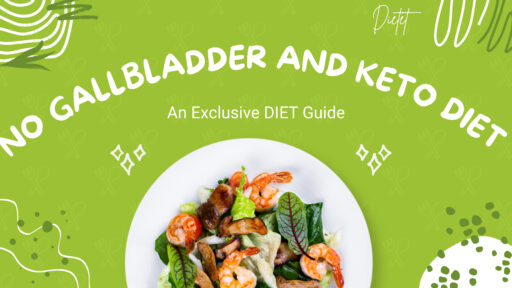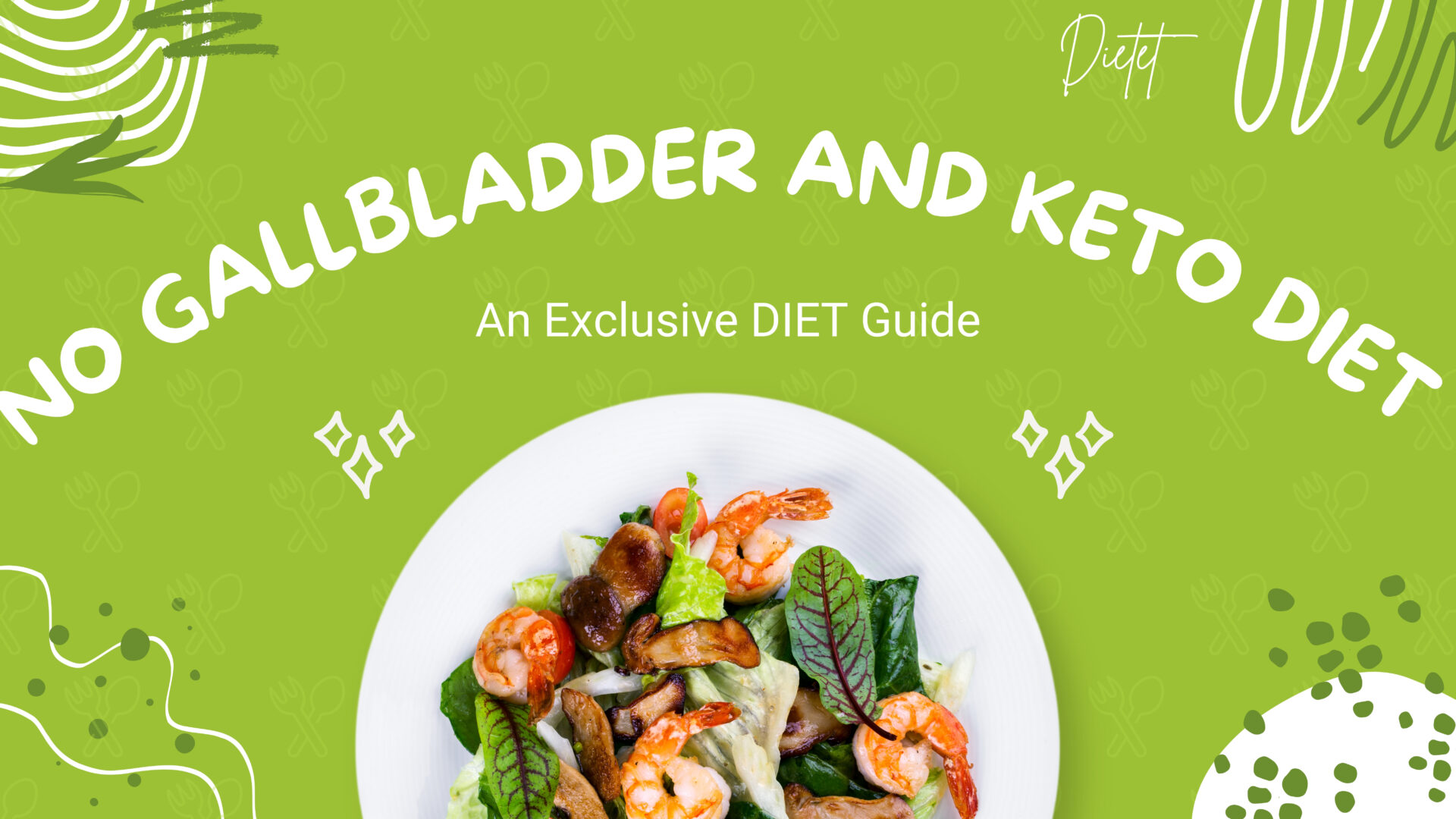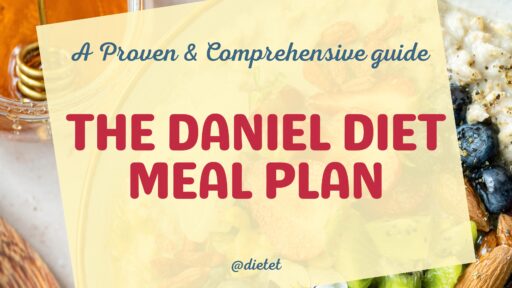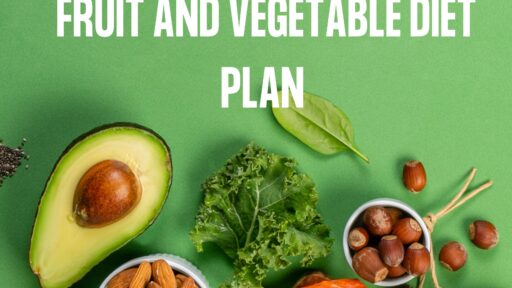No Gallbladder And Keto Diet: An Exclusive & impactful Guide
You’ve probably heard about the keto diet, the trendy weight-loss plan that advocates a low-carb and high-fat lifestyle. Nonetheless, if you’re one of the many people who doesn’t have a gallbladder anymore, you might find yourself questioning, Can I follow the keto diet without a gallbladder?
Well, friend, let’s unfold that mystery right here, right now. Making dietary decisions can be tough, especially when dealing with the absence of an organ that played a significant role in your digestion. Your worries are valid, but there’s good news!
“Even without a gallbladder, a balanced and effective keto diet is not only possible but can be beneficial for your health.”
Stay with us as we embark together on this journey to explore and understand how the gallbladder-less body deals with a keto diet. Get ready to gain valuable insights that will empower you to make informed dietary choices.
- Following the keto diet without a gallbladder can pose certain challenges, and might necessitate some adjustments.
- Reducing fat intake is generally recommended for individuals trying to maintain a ketogenic lifestyle without a gallbladder.
- After gallbladder surgery, it’s often suggested to start with a low-fat diet. However, some individuals may experience weight gain as a result.
- Despite not having a gallbladder, the consumption of healthy fats remains vital. The key is to consume these in smaller, more manageable portions and closely monitor how your body reacts.
- Listening to your body’s signals and adjusting accordingly is essential when testing a keto diet without a gallbladder. If certain problems persist after altering the diet, consult your healthcare provider.
- Ox Bile supplements are thought to aid in fat digestion for those transitioning to a keto diet. This supplementation can be particularly helpful for individuals concerned about their weight or managing gallbladder-related issues.
- Transitioning to keto should be a careful and gradual process. Paying close attention to your body and understanding your limits is crucial, especially for individuals who are heavier.
- Ox Bile Salts Taurine, branded as Keto Gallbladder, can aid in the digestion of fats and proteins.
- With the right adjustments, it’s possible to follow a ketogenic diet successfully without a gallbladder.
Learn More about Keto Diet
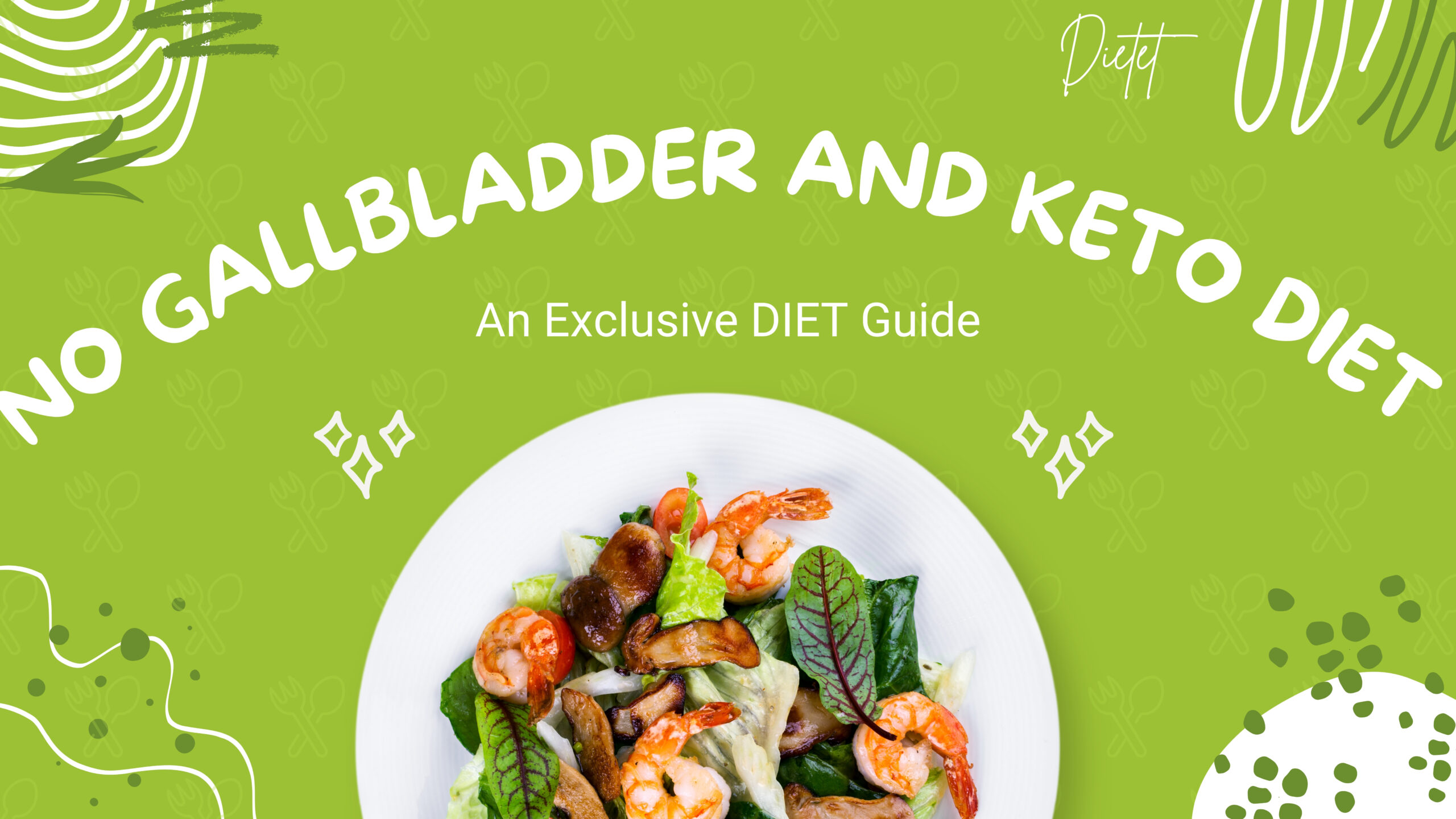
Based on the meal-ordering system of the ketogenic diet, it’s crucial to establish a step-by-step guide and tailor-made meal plan. This becomes particularly essential when attempting to engage in a ketogenic lifestyle without a gallbladder. A custom dining plan can ensure that you consume an appropriate balance of nutrients, maintain accurate portion sizes, and manage your daily fat intake efficiently.
People who don’t have a gallbladder often have concerns that following the keto diet will increase the chances of developing kidney stones, or experiencing other complications such as electrolyte imbalances. This can occur due to the high consumption of animal protein, which can lead to more acidic urine, hence increasing the risk of kidney stones. To mitigate this, you should focus on consuming a diet that is high in fats but includes moderate amounts of protein.
Supplements are another avenue that can be explored to alleviate any concerns with digesting fats. As part of the mix, keto-specific digestive enzymes can provide much-needed support. These enzymes facilitate the breakdown of fats, carbs, and proteins, promoting better overall digestion. Including a regular dose of digestive enzymes in your diet can potentially help with the digestion of fat and may reduce many of the common side effects associated with a gallbladder-less keto diet.
In any scenario, it’s necessary to consult with your doctor or a nutritionist before starting a new diet or supplement regimen. If you encounter persistent digestive discomfort, specifically while consuming fats, it’s best to seek immediate medical help. Thus, while keto without a gallbladder may demand a few changes, it’s entirely doable—and potentially even beneficial—with the right precautions.
How does the Keto diet affect the gallbladder?
Without the gallbladder, adopting a keto diet can seem daunting. Your gallbladder usually plays the vital role of storing bile, a substance produced by your liver to help your body break down and digest fats. In its absence, greater care must be taken to adjust and balance your fat intake. Without such adjustments, you can face difficulties or discomfort, as your liver now continuously releases bile into your digestive tract, potentially leading to poor fat digestion.
That said, it’s not impossible to embark on the keto journey without your gallbladder. In fact, with the right steps and adaptations, it can be manageable, and may even assist in healthy weight management.
Less is More: Adjusting Fat Intake
One of the primary measures to adopt is lessening your fat consumption. It’s key to understand that the keto diet doesn’t have a one-size-fits-all approach. Modifications can, and should be, made based on individual health conditions and concerns. Although keto is a high-fat diet, it is advisable for individuals without a gallbladder to not go overboard with fats. Consuming them in smaller portions through the day, instead of vast amounts at a time, will ease the digestion process.
Guide to Keto Without Gallbladder
Don’t be overwhelmed, there are step-by-step guides and custom meal plans available for those looking to venture into keto without a gallbladder. Personalized regimens can help ease your transition into the diet while ensuring that your body’s needs are met and your overall health is maintained.
Ox Bile Supplements
In addition to a tailored diet, Ox Bile supplements can offer much-needed support in your keto journey. These supplements, often paired with Taurine, have shown to aid fat digestion, making it a favorable companion for individuals without gallbladders, especially if you have weight concerns.
It’s also important to remember that heavier individuals can eat more calories on the keto diet, translating to higher fat intake and potentially more strain on the liver. Hence, supplements for fat digestion could be doubly significant in such cases.
Choose Healthy Fats Wisely
Fats are indeed crucial to the keto diet, regardless of gallbladder status. However, it’s essential to source your fats from healthy variants and pay keen attention to your body’s response to them. Remember, every individual’s digestion capabilities are different and what suits others might not necessarily suit you.
In conclusion, transitioning to a keto diet without a gallbladder necessitates careful planning and personalized adaptation – but represents a journey that is certainly feasible. After all, your food habits should dish out comfort and health, not complications.
Visit for more Exclusive Diet Tips
Can you follow a Keto diet after gallbladder removal?
Indeed, the key takeaway is – yes, it is absolutely possible to stay true to the ketogenic diet after you’ve had your gallbladder removed. You might wonder how it’s possible considering the organ’s role in digesting fats, but with a few valuable tips, you can still succeed on your keto journey.
Just because you’re without a gallbladder doesn’t mean you have to stop your ketogenic diet. Instead, adjusting your fat consumption is the strategy here. Since the gallbladder aids in digesting fats, it could be a tad challenging to digest the high amount of fats required by the diet without the organ. Nonetheless, this doesn’t negate the possibility of maintaining a healthy ketogenic lifestyle. Begin reducing your fat intake and gauge how your body responds. As a matter of fact, starting with a low-fat diet after your surgery is a common approach.
Following gallbladder removal, many individuals struggle with weight gain and often turn to keto for answers. Their experience could be your beacon. Navigate the initial hurdles, learn from their journey, and make changes suited to your needs. A custom meal plan could provide a structured way forward, easing the daily effort of calorie counting and macronutrient tracking while adjusting to life post-surgery. It’s like having a step-by-step guide crafted solely for individuals looking to traverse the keto path without a gallbladder.
Should you still find it tough to digest fats, consider discussing with your doctor particular solutions. For instance, ox-bile supplements might prove to be an alternative – supplying your body with what it needs to better assimilate fats. Or perhaps, considering digestive enzymes could be beneficial should there be underlying digestive issues after the removal of your gallbladder.
Your ‘fat’ journey may continue with the right types of fats. Healthy fats are vital – gallbladder or not. You just need to consume them wisely, in smaller portions, and pay close attention to your body’s reaction.
Certainly, there are challenges while doing keto without a gallbladder, but rest assured, with the right adjustments and changes, you can still stick to a ketogenic diet successfully even after the removal of your gallbladder.
What are the risks of doing Keto without a gallbladder?
Pursuing a keto diet without a gallbladder is not without challenges. The gallbladder’s key role is to store bile, a substance that helps in the digestion and absorption of fats. Without it, fat digestion becomes more arduous, which can lead to discomfort during the adaptation period of the keto diet. This can manifest in symptoms such as bloating, diarrhea, and nausea, particularly following the intake of heavy or fatty meals.
Another significant risk is an increased burden on your liver. Think of the liver as your body’s natural detox center. Higher fat consumption, particularly from a keto diet, can strain your liver as it works overtime to digest these fats. This could potentially lead to liver disease over time, so it’s crucial to keep an eye on your fat intake, and heed any discomfort or red flags from your body.
Lastly, heavier individuals are at a higher risk. They can consume more calories on the keto diet compared to their slimmer counterparts, meaning fat intake is often higher too. This can further strain the liver and may cause more severe digestive discomfort. However, don’t let this dissuade you. With the right approach, and some patience, it’s still possible to safely and healthily follow a keto lifestyle without a gallbladder.
Are there any foods to avoid on Keto if you don’t have a gallbladder?
Absolutely! While on a keto diet without a gallbladder, it’s imperative you remain vigilant about your food choices. Your unique dietary journey may encounter certain fatty foods that your body may not digest or tolerate as well as before.
- Fried Foods: Being rich in unhealthy fats and often in unhealthy cooking oils, fried foods can endlessly exacerbate digestive woes and interfere with your progress to healthy ketosis. Think again before reaching for that deep-fried chicken or fries!
- Fatty Meats: Incredibly fatty cuts of meat can be challenging for your body to break down without a gallbladder. Swap for leaner choices like chicken breasts, lean cuts of beef, or fish.
- Full-Fat Dairy: You might find certain full-fat dairy products like cream, cheese, and whole milk more difficult to digest. Consider lower fat alternatives or lactose-free options.
- Exotic Fats: Depending on your body’s response, you might need to limit or avoid exotic fats like MCT oil, coconut oil, or palm oil as these might cause digestive distress.
Remember, everyone’s adaptation to a keto diet without a gallbladder varies and the above suggestions might not be universally applicable. It’s all about listening to your body. Be open to experimenting with different foods, take note of how they affect you, and adjust your diet accordingly.
Adapting to a keto diet doesn’t mean compromising on taste. Cooking with herbs, spices, and incorporating various flavors can help. A step-by-step guide or a custom meal plan can be a reliable road-map, helping you navigate your keto journey without a gallbladder with ease.
Can you do intermittent fasting without a gallbladder?
Just as with a keto diet, you might be asking, “Is it possible to embark on intermittent fasting without a gallbladder?” Good news – it is indeed feasible! The strategy behind intermittent fasting offers quite different challenges compared to a high-fat diet, such as keto.
Remember, during fasting, your body is operating off stored sugars and fat for energy. It’s not reliant on a constant intake of dietary fats that would require immediate breakdown with bile, hence the absence of a gallbladder might not pose a significant issue. However, bumper is, once it’s time for that first meal after fasting, issues may arise if that meal is loaded with high fat content due to the lack of stored bile from a missing gallbladder for digestion.
Consequently, if you’ve undergone a cholecystectomy (gallbladder removal) and you plan to include intermittent fasting in your routine, it becomes crucial to manage your meal composition mindfully. Aim for meals lower in fat immediately post-fast and gradually increase your fat intake as your body adjusts. Monitor your body’s response vigilantly. Any discomfort or digestive issues could indicate that you’re pushing the limits too fast or too far.
In essence, balance and careful moderation and are key. Remember, you know your body best, so listen to it and respect its boundaries.
FAQ
Q: Does the removal of the gallbladder affect my ability to absorb fats and other nutrients?
A: Typically, the gallbladder is responsible for storing and releasing bile, which helps in the digestion of fats. However, even after gallbladder removal, your body can still produce bile to aid in digestion of fats, albeit less efficiently. This may cause you to experience some changes in digestion, but it doesn’t necessarily prevent you from absorbing fats and nutrients.
Q: Can I expect any side effects when transitioning to ketosis without a gallbladder?
A: Some people might experience “keto flu” symptoms such as fatigue, nausea, and brain fog when they first begin their keto journey. Additionally, without a gallbladder, you might experience diarrhea or other digestive discomfort due to an increase in fat consumption. If these symptoms persist or become severe, it’s important to consult with a healthcare provider.
Q: Is the use of Ox Bile supplements necessary when pursuing a keto diet without a gallbladder?
A: Ox Bile supplements can help mimic the bile that your gallbladder would typically release to break down fats. While it’s not strictly necessary for everyone on a keto diet without a gallbladder, some individuals may find it helpful in managing digestive discomfort. You should consult your physician before starting any new supplement regimen.
Q: Can I still do intermittent fasting without a gallbladder?
A: Experts generally consider intermittent fasting safe for individuals without a gallbladder. However, as there may be digestive discomfort during the initial weeks, a gradual approach is often recommended. For instance, start with a shorter fasting window and gradually increase it as your body gets used to the change. Always monitor your body’s reactions closely and consult with a healthcare provider if you have any questions or concerns.
Q: Overall, is it possible to follow Keto smoothly after gallbladder removal?
A: Many people successfully follow a keto diet after having their gallbladder removed. The key is often to make gradual changes, monitor your body’s response, and adjust as necessary, while seeking guidance from healthcare professionals. It’s all about finding the right balance that works for your body.
Final Thought
It’s fair to conclude that navigating the waters of the ketogenic diet when you lack a gallbladder can seem initially daunting. However, you’ve seen that it’s entirely possible to make the diet work for you with some careful planning and healthy alterations. The key lies in learning how to manage your fat intake effectively, optimising the type of fats you consume, and embracing supplements when needed.
Remember, taking it slow and cautious is not a sign of weakness, but of wisdom. You are unique, and so is how your body reacts to different diets and lifestyle changes. Therefore, prevent rushing into the full ketogenic diet without giving your body the chance to adjust. Incrementally increasing your fat intake can help you gauge how well you’re doing without straining your digestive system.
Supplements, especially ox bile supplements, can also be a lifesaver when your body needs extra support to break down fats. But just as with any supplement, use them prudently, and always under the guidance of a healthcare professional.
Most importantly, choosing healthy fats over unhealthy options is pivotal in any diet plan, but more so when you’re without a gallbladder venturing into a high-fat diet like keto.

